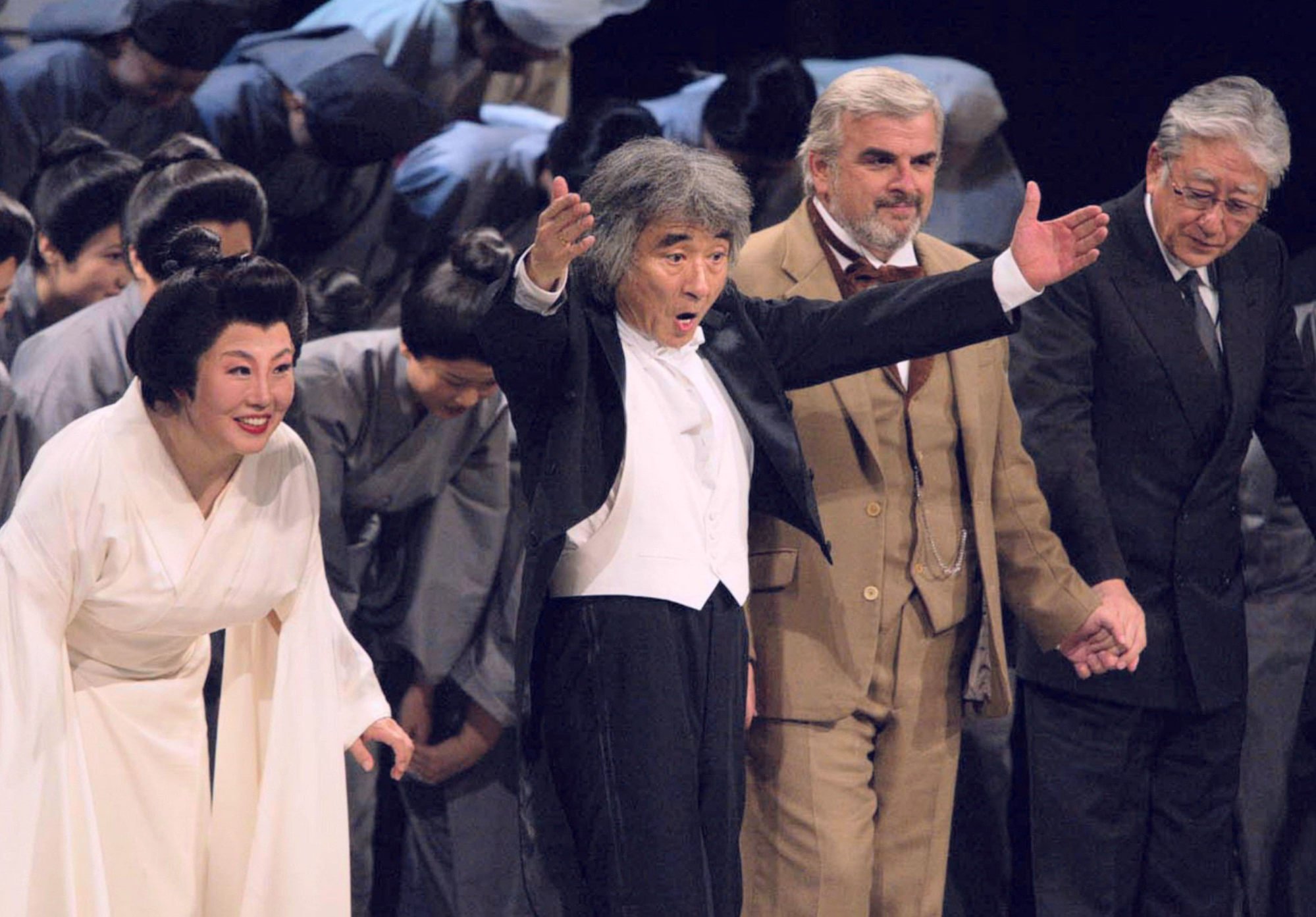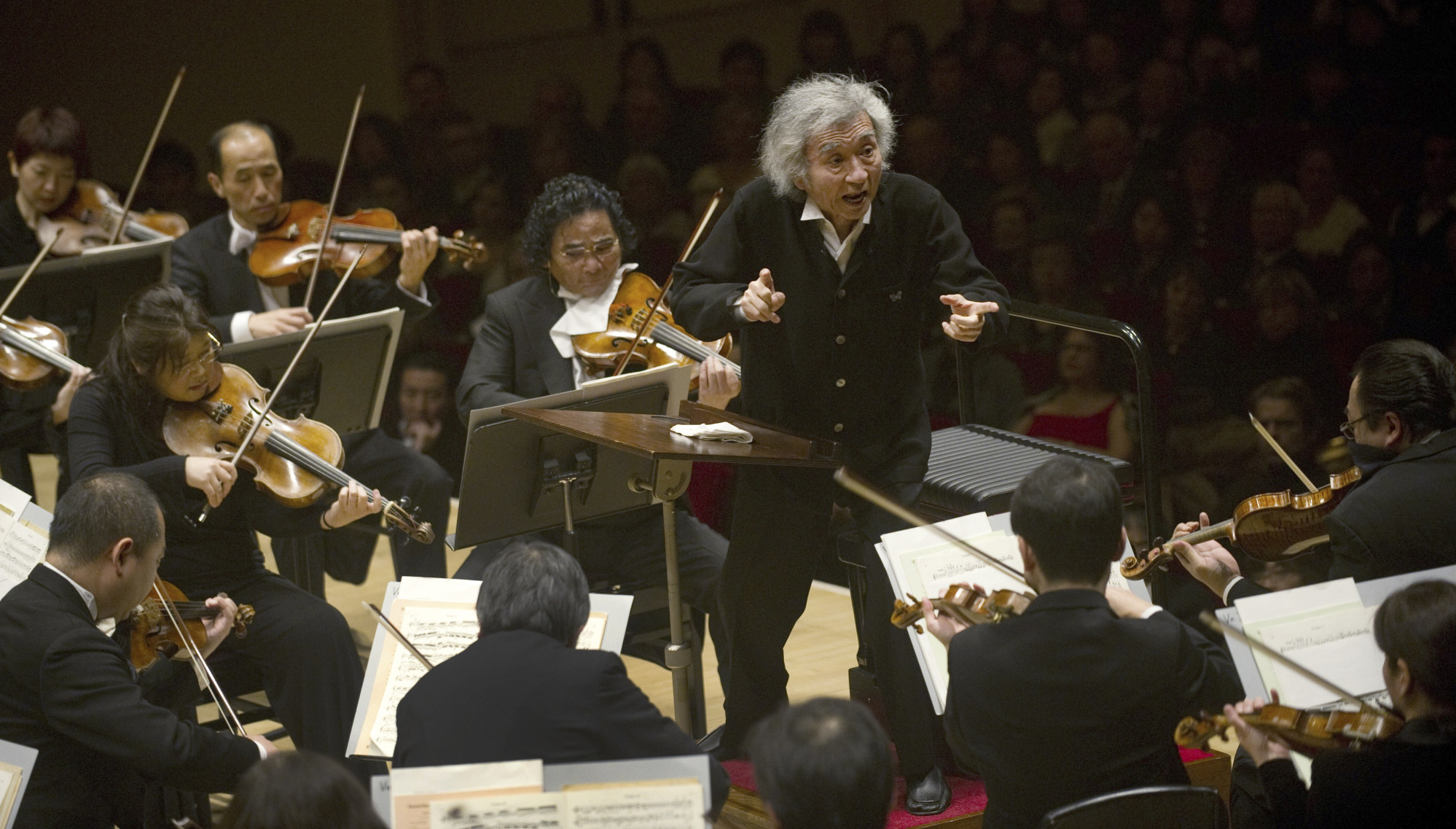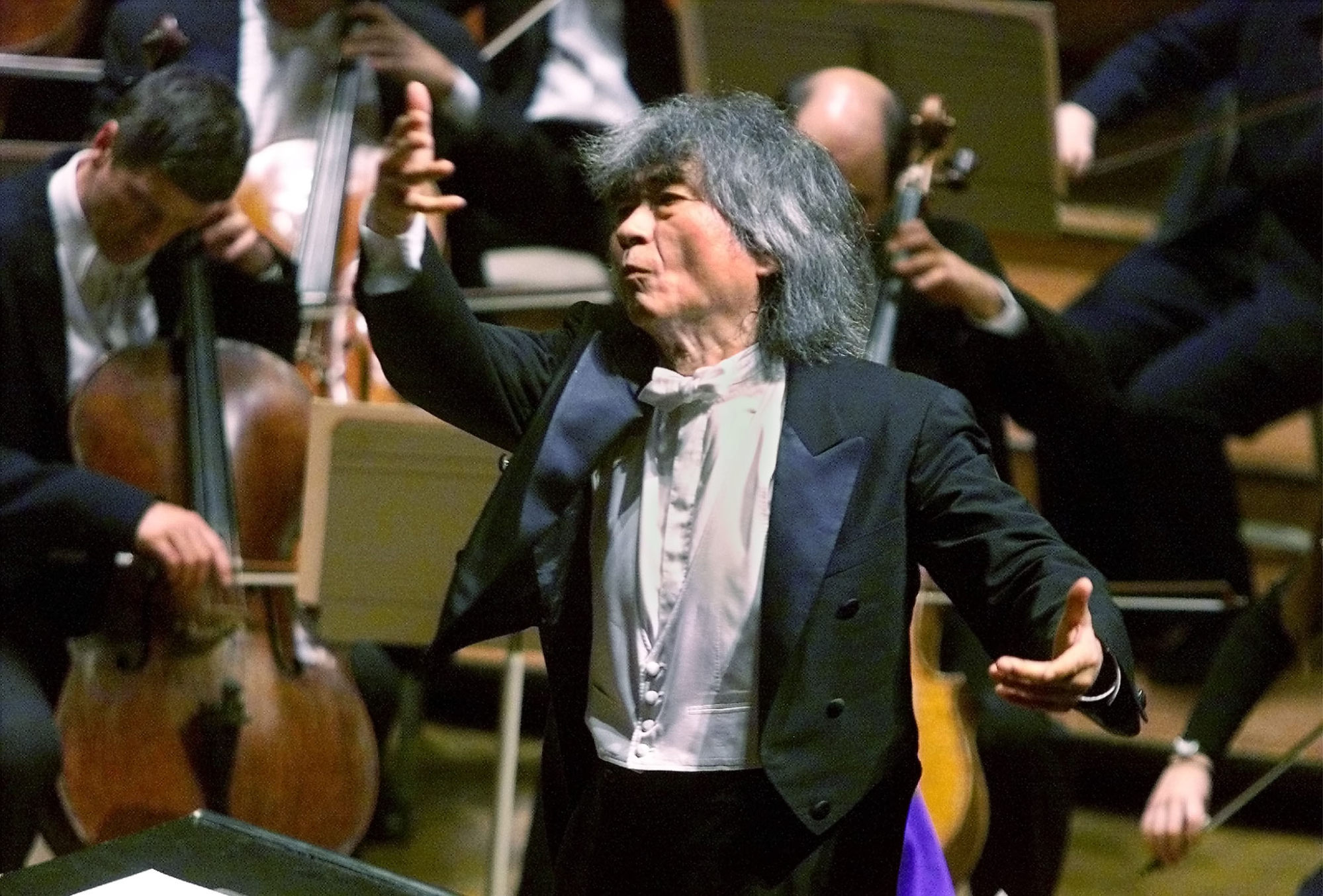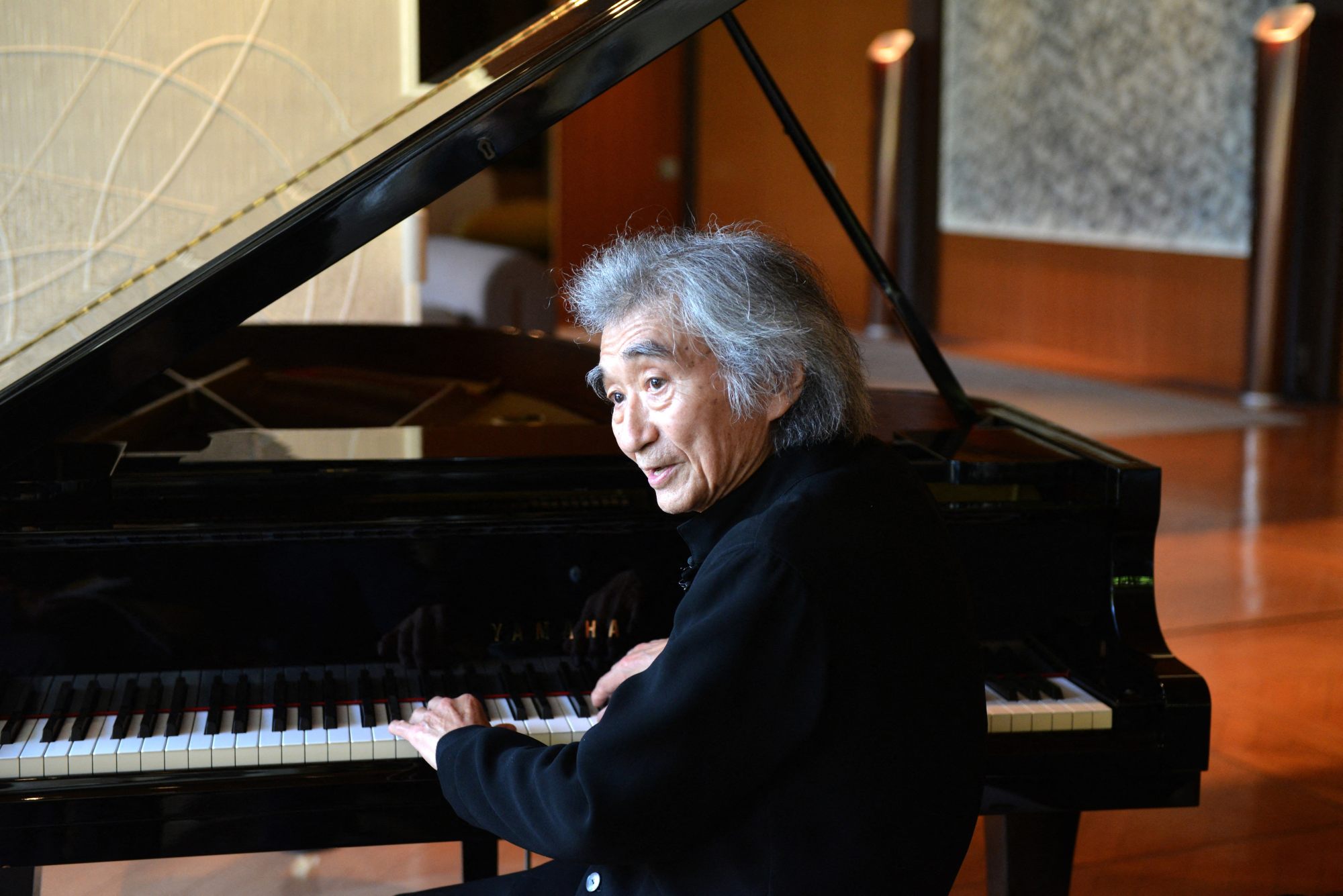Naturally, he defied her, and one day he broke his two index fingers in a ruck during a game, abruptly ending all hope of ever becoming a concert pianist.

It was only then that the idea of conducting was floated.
Barack Obama would years later gently chide the diminutive conductor for his costly act of rebellion.
“Now I have to say, looking at you Seiji, I’m not sure that was a good idea” taking part in that rugby match, said the US President at the time. “But fortunately, for the rest of us, it opened up the door to a career as a conductor.”
Broken fingers were not the only obstacle Ozawa had to a musical career.
He would later sum up his childhood as: “No money, my house.”

Born to Japanese parents in northern China, which was then occupied by Imperial Japan, his family fled back to Tokyo as defeat during World War II loomed in 1944.
Although his father was a dentist, there was little cash to spare, and Ozawa paid for his lessons by mowing his teacher’s lawn.
After the life-changing rugby accident in 1950, it was his piano teacher who suggested the 15-year-old try conducting, an unknown world to Ozawa at the time.
But after seeing his first orchestral concert – Beethoven’s Piano Concerto No. 5, he later recalled with typical precision – he was hooked.

And Ozawa quickly shone.
In 1959, he won first prize at an international competition for young conductors in Besancon, France.
After studying under Austrian conductor Herbert von Karajan in Germany, his musical talent caught the attention of US conductor Leonard Bernstein. This paved the way for him to become assistant conductor at the New York Philharmonic in 1961.
In 1973, Ozawa was installed as the music director of the Boston Symphony Orchestra and served 29 years there, a tenure rare in length. He also served as musical director of the Vienna State Opera from 2002 to 2010.
In Japan, he founded the Saito Kinen Orchestra in the 1980s as a tribute to his teacher Hideo Saito, and it has regularly performed at the annual music festival held in Matsumoto, Nagano Prefecture, in central Japan.
He also held positions such as the conductor laureate of the New Japan Philharmonic orchestra.

Ozawa received an honorary doctorate from Harvard University, and was keen to educate musicians of the next generation. In 2004, the maestro set up the Seiji Ozawa International Academy Switzerland in Geneva where he taught young musicians for free.
In 2016, he won the Grammy Award for Best Opera Recording for a performance he conducted of Ravel’s “L’Enfant et Les Sortileges” (“The Child and the Spells”) by the Saito Kinen Orchestra at its 2013 festival.
His work even reached outer space, when he conducted the Saito Kinen Orchestra (SKO) to deliver Beethoven’s “Egmont” Overture to astronaut Koichi Wakata on the International Space Station n 2022.
Additional reporting by dpa

